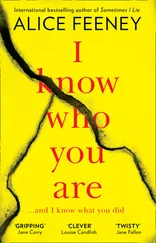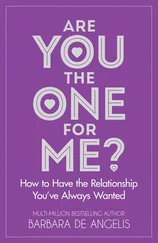“I hope you put a lock on your suitcase,” I heard an American man say to the woman next to him. “They rifle through the bags, you know.”
Thanks to my mother’s precautions, my suitcase was locked. I retrieved it and made my way through customs. I had nothing to declare.
Sam’s cousin Corinne was supposed to meet me at the airport. I finally identified her in the throng. She was the only one who didn’t have a cigarette in her mouth. “Everyone smokes here,” she said. “Even in the office. It’s like living inside an ashtray. I quit after college, and now the smell of smoke makes me sick. I come home every day and have to wash my hair, like immediately. Otherwise my pillow reeks. ”
“I’m Sarah,” I said.
“Right. Welcome to Russia.”
The arrivals area was clogged with people. All the men wore either Adidas tracksuits or leather coats. Most of the women were holding bouquets of flowers. Corinne threaded her way through the crowd. I followed her out to the curb and into the back of a gray Toyota Land Cruiser. “The magazine has a car and a driver. This is Boris,” she said, gesturing toward the driver’s seat.
The man behind the wheel turned around and smiled at us. There were dark, empty spaces where teeth should have been.
“He used to drive Brezhnev,” said Corinne. “He pretends not to speak English, but I think he understands everything I say. I’m sure he was a spy. Maybe he still is.”
Corinne was tall and broad-shouldered. Her eyebrows had been plucked in a severe angle that gave her face a merciless cast. She had wavy auburn hair and wore bright lipstick that exaggerated the downturn of her mouth. She was sheathed in black, with pointy heels. I soon learned that she always wore black. She said any other color was impossible to keep clean in Moscow. The whole city, she said, was coated in grime. I said she seemed young to be an editor, and she laughed. “I’m older than I look,” she said, “and this place ages you fast, let me tell you. The pollution is doing a number on my skin. God, I miss New York.” She grew up in Manhattan, then went to college at Vassar, she said. She studied Russian language and literature, then got her start as an editorial assistant at Harper’s Bazaar. “I was the only person in the New York office who spoke Russian, so when they decided to launch the magazine here, they offered me the job.”
As she talked, I could see Boris watching me in the rearview mirror. The car lurched onto the highway, and I looked up to see a giant billboard. It was the only brightly colored thing in an otherwise grim landscape, and its presence was so jarring it was as if it had been Photoshopped into frame.  said the sign. I sounded out the word: “Pepsi.”
said the sign. I sounded out the word: “Pepsi.”
“The choice of a new generation,” said Corinne. “Pepsi was the first foreign brand in the Soviet Union. They’ve been here since like 1970. Cut some kind of deal with Stolichnaya: vodka in stores in the U.S. in exchange for Pepsi here.”
“Huh.”
“It’s a good thing you can read Russian. It’ll make getting around a lot easier.”
“I’m rusty,” I said. “I can only read really slowly.”
“As long as you know the alphabet.”
“Do you mind if I open a window?” I said. “I get carsick.” The numbing exhaustion of jet lag combined with a mounting headache from all the smoke in the airport made me feel like I was going to throw up. I cranked open a window, but the air that rushed in wasn’t fresh. I coughed.
“Terrible air quality here,” said Corinne. “Whatever you do, don’t go running outside.”
What struck me on the forty-minute ride into the city was how run-down Moscow was. It was hard to believe that a country with such exhausted infrastructure was ever considered a superpower. The margins of the city were dotted with sad Soviet apartment blocks, trapped in a 1960s version of the future. The avenues were dirty—not with litter but with actual dirt, as if the entire city needed a good scrub. And our car was one of the few on the road that wasn’t leaking exhaust. We were surrounded by ancient Ladas, some of them seemingly stapled together. “This is where the world’s cars go to die,” said Corinne.
“I thought Moscow would be ...” I paused, realizing I wasn’t sure what I had expected.
“More impressive?” said Corinne.
“Yeah, I guess,” I said.
“The Metro is impressive. And the architecture in the center of the city, all the buildings from before 1917. But yeah, most of the country is falling apart.”
I glanced at the front seat to gauge Boris’s reaction. But if he understood, he didn’t let on.
* * *
CORINNE’S APARTMENT was on Patriarch’s Ponds, a location made famous by Bulgakov’s Master and Margarita. A lot of expats lived in the neighborhood, she told me. The grand prerevolutionary buildings had been renovated to turn communal apartments into luxurious rentals for foreigners. The pond was in a leafy park, around which the gorgeous old apartment buildings stood watch. It looked a little like Paris. Boris pulled the car up in front of a pale yellow building. “No doorman,” said Corinne with a sigh.
I removed my rolling suitcase from the back of the car and followed her to the front door. She unlocked it with an old-fashioned brass key, and then we were in a dank, dark stairwell that smelled of piss. “The elevator’s broken,” said Corinne, and so we walked right past the lift—it was the cage style that requires you to crank open the gate—and mounted a graffitied flight of stairs. At the top Corinne stopped in front of the only door. “I’m on the first floor,” she said. “Or the second floor, as we’d call it in the States.”
Corinne’s apartment was a surprise after the dreary stairwell. I found myself in a large entrance hall with a parquet floor. The ceilings must have been sixteen feet high. French doors of elaborately carved wood opened onto a living room meticulously furnished in mahogany. It was like a Merchant-Ivory film.
“Shoes off, Russian style,” she said. She removed her boots and stepped into the tapochki waiting by the door. “We’ll have to get you a pair of your own slippers.”
I took off my Converse sneakers. I was sure that my socks smelled foul after twenty-four hours of travel, so I peeled them off and opted for bare feet.
“My landlord is half Russian, half Italian,” she said. “And his wife’s American. They renovated the place with what they call ‘Western standards.’ There’s only one bathroom, but it has a Jacuzzi tub.” Moscow was still considered a hardship post. Companies lured expat employees there by paying for their housing.
“Beautiful,” I said.
“When there’s hot water,” she said. “Don’t get me started on that. Last week I went three whole days without it. I made the magazine put me up at the National Hotel.” Corinne was fast and unwavering. Everything she said throbbed with the urgency of an ambulance siren. A real New Yorker, I thought. “I had the housekeeper make up your bed,” she said.
I trailed her through the living room and down a short hallway carpeted with an Oriental rug. The doors at the end revealed two bedrooms. “You’re on the right,” she said.
The room wasn’t large, but I couldn’t get over the windows: floor to ceiling and veiled in brocade. I touched one of the drapes, and Corinne laughed. “Not much of a view, I’m afraid. The master bedroom looks out on the pond, but you’re stuck facing the alley.” Sure enough, when I pushed the fabric out of the way, I found myself looking at a dingy cluster of cars and two men in red tracksuits. Like tuning forks, they sensed that they were being watched and lifted heavy eyes to mine. They pinched their cigarettes between index finger and thumb, not with the nonchalance of dandies but with the obsession of addicts. I let the curtain fall into place.
Читать дальше

 said the sign. I sounded out the word: “Pepsi.”
said the sign. I sounded out the word: “Pepsi.”










